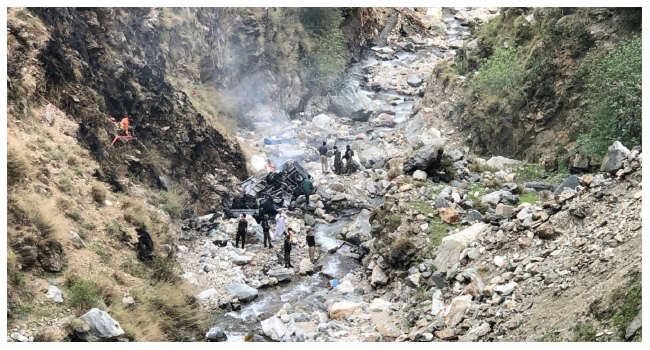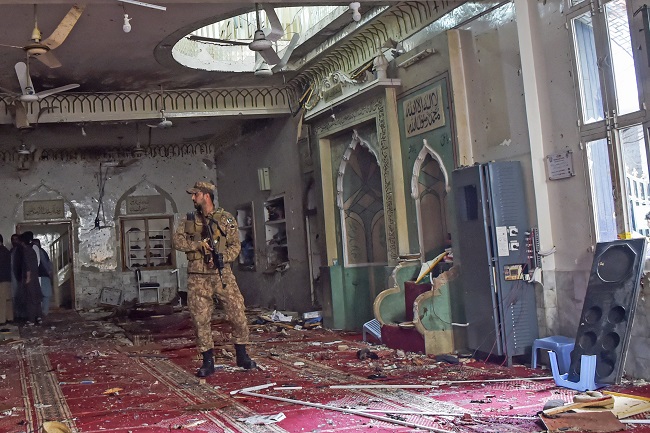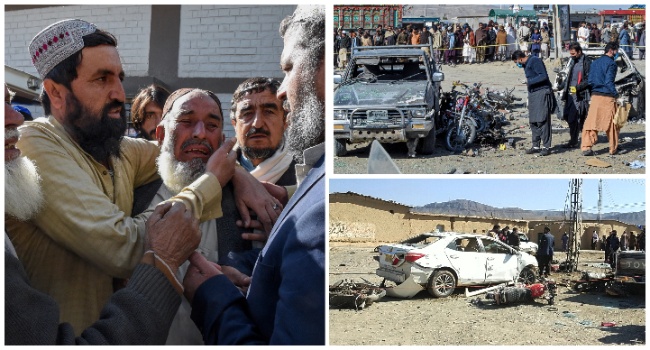
A suicide attacker blew himself up outside a Sufi shrine in Pakistan’s restive southwest on Thursday, killing 13 people and wounding at least 20 others, officials said, as Muslims attended annual celebrations of a local saint.
The incident comes after a bomb attack on the same shrine — located in the oil and gas rich Balochistan province, bordering Iran and Afghanistan — killed 35 people in 2005.
“A suicide bomber blew himself up after he was intercepted by police guards on duty outside the shrine, killing 13 people and wounding at least 20 others,” senior local administration official Asad Kakar told AFP.
“The suicide bomber struck outside the shrine at a time when it was packed with people, attending anniversary celebrations of Syed Cheesal Shah,” Kakar said, referring to a local saint. The bomber came on foot, he added.
Members of Sunni and Shiite sects make daily visits to the shrine in Jhal Magsi district, with attendance climbing significantly during festivities.
Senior local police official Muhammad Iqbal also confirmed the death toll as fears mounted it could rise further.
Balochistan government spokesman Anwaar-ul-Haq Kakar said: “We have confirmed reports it was a suicide attack.”
There was no immediate claim of responsibility but militants and separatists have repeatedly targetted minority Shiite Muslims at religious sites, as well as security officials.
Balochistan is afflicted by Islamist militancy, sectarian violence and a separatist insurgency.
Sectarian violence — in particular by Sunni hardliners against Shiites who make up roughly 20 percent of Pakistan’s 200 million people — has claimed thousands of lives in the country over the past decade.
Balochistan is the largest of Pakistan’s four provinces, but its roughly seven million inhabitants have long complained they do not receive a fair share of its gas and mineral wealth.
A greater push towards peace and development by Pakistani authorities has reduced the violence considerably in recent years.
Several million Muslims in Pakistan are still believed to follow Sufism, a mystical branch of Islam whose wandering holy men helped spread the religion throughout the Indian subcontinent in the 13th century.
However, it has been overtaken in recent decades by more conservative versions of the faith.
AFP



